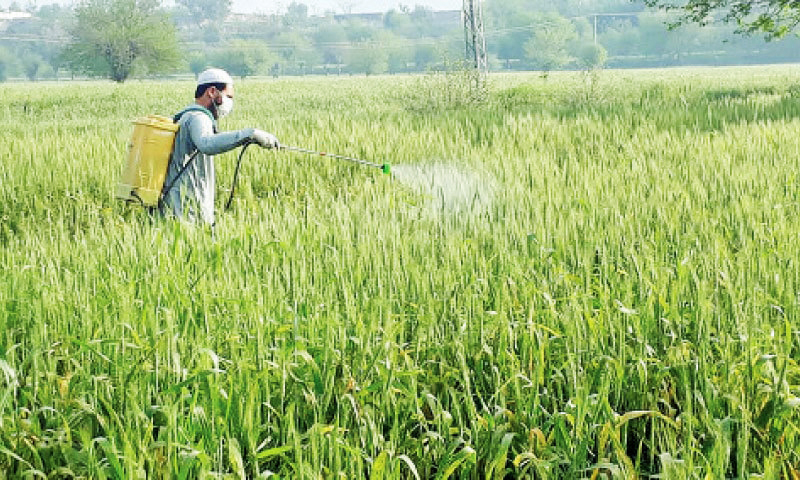Pakistan’s fertiliser industry says it is internationally competitive and can thrive in a fully deregulated environment without any subsidy. In fact, some stalwarts of the industry have called for an end to subsidized gas supply and deregulation of the market.
The industry has also asked the federal government to lift the ban on the export of fertilisers because it has a potential of exporting 7 million tons of urea, raking in USD 700 million in foreign exchange, if gas availability is ensured.
The fertiliser industry is being provided gas at subsidized rates. Presently, Fertiliser Sector is being provided gas according to the Fertilisers Policy of 2001 with some players offered PP 2012 and subsidized LNG rates. During the last 10 years, the government has provided subsidy of PKR 339 billion or 270/bag to the farmers.
After deregulation, the industry will be given gas at weighted average cost of gas to all users including indigenous plus imported RLNG.
“After the deregulation, prices of urea in the local market will increase”, Engro Fertilisers Limited CFO Imran Ahmad told The Truth International (TTI). “But the switchover will benefit both farmers and the government in the end”.
According to Pakistan Bureau of Statistics (PBS) prices of fertilisers have already increased by 28.5 percent.
Fertiliser Sector has made a profit of PKR 57 billion during the last one year. DAP ex-Karachi prices began the year around PKR 1,000/50kg bag higher than last year and rose by another PKR 1,100/bag to around PKR 5,500/bag by the end of the period, while they were broadly stable in January-June last year.
The difference to 2020 prices is equivalent to almost USD 260/mt at the current exchange rate. At the same time, DAP import prices were an average USD 216/mt higher this year than in 2020, averaging USD 530/mt CFR in January-June.
Deregulation will impact the farmers who will pay higher prices. Currently, prices of urea are set by industry players at a 75 percent lower than the imported urea, after deregulation prices of urea will be set on import parity basis. Prices of Urea will go up to PKR 2855 per bag in next five years and in 10 years; prices will be 3166/bag, from the current price 1763/bag.
Local prices of urea remained lower than international prices in the last 10 years mainly because of an indirect subsidy on feedstock gas, which is the primary raw material used in fertiliser manufacture.
Imran Ahmad said that the international market price of urea is equivalent to PKR 7000/bag while in Pakistan it is selling at PKR 1700/bag because government is providing subsidized gas to the fertilisers units.
In other words, the fertilisers plant are passing the benefit to the farmers to the tune of PKR 5000/bag. He said that if the government imports urea from the international market at current prices farmers will bear an additional burden of PKR 363 billion per year.
Fertiliser industry has calculated that if the price of a bag of urea increases by PKR 50, it will have a nominal inflationary impact and price of Roti will go up by a mere PKR 0.01.
Imran Ahmad says, “After deregulation, the fertiliser sector will be provided gas at par with industrial sector, which will increase the revenue of government by PKR 89 billion”.
About 84 percent of Pakistan’s total fertiliser demand is met through local production while the gap is plugged through imports. The government is giving indirect subsidy to fertiliser sector by offering subsidized input (natural gas) to keep fertiliser prices low.
Pakistan Institute of Development Economics (PIDE) has said in its report that the government spends roughly PKR 200 billion every year on subsidizing the fertiliser industry.
Around 80 percent of the gas supplied to the fertiliser industry is for feedstock. A differential of PKR 721 per million cubic BTU (British thermal units) exists between feedstock and fuel stock prices. The government also provides a subsidy of PKR 1,194 per 50kg bag on imported urea.
The retail price of a 50kg urea bag was PKR 1,686 in 2020-21 after a subsidy of PKR 865 per bag on feedstock gas. About 65 percent of the retail price (PKR 1,096 per bag) constituted the cost of production while the remaining 35 percent (PKR 590) was the profit that was divided among different stakeholders, including production units, the PIDE paper said.
However, if the subsidy on feedstock gas amounting to PKR 865 per bag was to be withdrawn, the selling price of urea would soar to PKR 2,551 per bag.
Imran Ahmad said that around 90 percent of the farmers have 12.5 acre land so the government can provide a targeted subsidy of PKR 65 billion through Kisan Cards to them.
Major fertiliser companies in Pakistan increased their profits in the first half of 2021 compared with 2020, as higher fertiliser prices raised margins.
Profits after tax of companies Engro, Fauji, and Fauji’s FFBL subsidiary rose year-on-year, with Engro more than doubling its earnings over the period. Engro’s fertiliser division reported profits of 10.5 billion rupees (USD 63.9 million) for January-June, compared with PKR 4.5 billion in the first half of 2020. Gross profits rose by 53 percent over the period to PKR 21.4 billion.
Fauji’s (FFC) fertiliser division achieved overall profits after tax of PKR 11.6 billion in the first half, up by 18 percent year-on-year.
The firm’s FFBL subsidiary, which operates a DAP and urea plant in southern Pakistan, posted profits of PKR 1.9 billion, compared with a loss of PKR 3.2 billion in the first half of 2020. FFBL’s profits turned positive in the third quarter of 2020 after several years of losses.
Executive Director of Fertiliser Manufacturers of Pakistan Advisory Council (FMPAC), Brig (R) Sher Shah Malik said: “Theoretically, the proposal of deregulating Fertiliser industry is fine but practically it is difficult to implement it until the government creates a mechanism of targeted subsidy for the farmers”.
Malik further said: “Farmers cannot afford urea at import price. The government has to make a robust and efficient plan of targeted subsidy for them”.
He said that some quarters accuse the fertiliser sector of flexing its muscle to benefit from around PKR 200 billion in subsidies every year. It is a great fallacy that the fertiliser industry is a major beneficiary of subsidies that are intended to keep the prices of essential food commodities at an affordable level.
Sher Shah MaIik asserted: “In the Covid-19 era, this self-sufficiency has meant that farmers in Pakistan enjoyed abundant and affordable urea supplies at around 60 percent cheaper prices (PKR 1768/bag) compared to the global market (PKR 4500/bag”.
He said contrary to the global trend, urea prices in Pakistan have remained stable this year and hover around 2012 levels. It must be well acknowledged that the fertiliser sector has passed on 2.4 times the benefit – amounting to PKR 122 billion this year alone so far and more than PKR 600 billion over the last decade – to farmers in the form of lower urea prices as compared to the gas subsidy received on feedstock, he added.
FMPAC, is of the view that the fertiliser industry is burdened with high borrowing costs and cash flow challenges as the government has accumulated around PKR 60 billion in outstanding GST refunds and subsidies since 2016. As a result, the industry’s investment and upgradation plans are likely to be compromised, which does not bode well for national food security and economic development.










